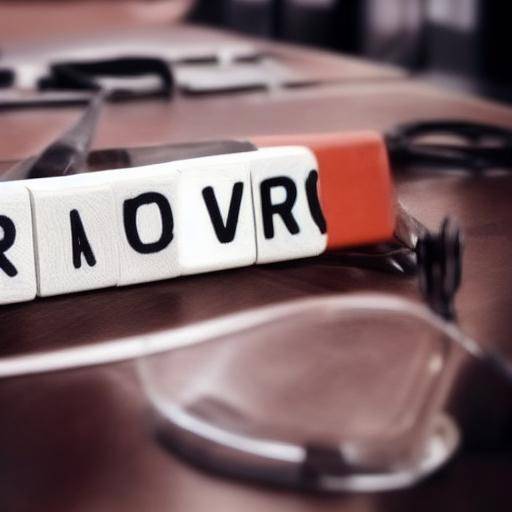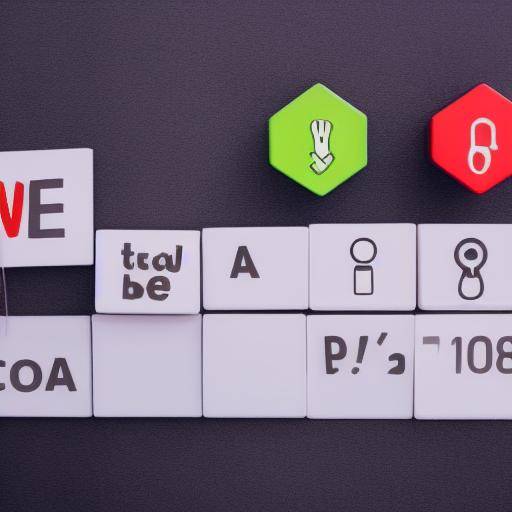
Self-confidence and self-esteem play a crucial role in people's lives, directly affecting their emotional, mental and social well-being. Ethics, for its part, is erected as a fundamental pillar that guides human behavior and decision-making. In this article, we will explore the impact of ethics on self-confidence and self-esteem, analyzing their interconnections, benefits and challenges. We will also address practical advice, future predictions and success stories to provide a comprehensive overview of these key issues.
Introduction
The relationship between ethics, self-confidence and self-esteem is complex and multifaceted. The way we perceive and value our integrity, our actions and our relationships influence our self-confidence and self-esteem. Ethics, as a system of values and principles that guides our decisions and behaviors, has a profound impact on how we see ourselves and how we interact with the world around us.
In this article, we will analyze how ethics can strengthen or weaken our self-confidence and self-esteem, examining the role of integrity, honesty, empathy and responsibility in the formation of a healthy and balanced self-image.
History and Background
The interrelationship between ethics, self-confidence and self-esteem has deep roots in the history of humanity. From ancient philosophies to contemporary ethical frameworks, the search for virtue, righteousness and integrity has been a recurrent theme in various cultures and contexts.
Greek and Roman civilizations laid the foundations of Western ethics, with thinkers such as Socrates, Plato, Aristotle and Cicero promoting the importance of wisdom, justice and self-knowledge as pillars of an ethical and virtuous life. These ethical ideals were closely linked to the notion of self-confidence and self-esteem, as moral integrity and self-reflection were believed to be fundamental to the integral development of the individual.
In the modern era, figures like Immanuel Kant, John Stuart Mill and Jean-Paul Sartre have contributed with ethical theories that continue to influence the way we understand our moral duties, our choices and our sense of personal worth. As society has evolved, ethical debates have enriched the understanding of self-confidence and self-esteem, emphasizing the importance of authenticity, self-respect and coherence between values and actions.
Analysis in Deep
The impact of ethics on self-confidence and self-esteem transcends philosophical and historical spheres, manifesting itself in various dimensions of everyday life. Ethical integrity contributes to the construction and maintenance of self-confidence by providing a sense of coherence between thoughts, words and actions. When we act according to our moral principles, we strengthen our self-image and our confidence in our abilities and decisions.
Comprehensive review
Analysis of the impact of ethics on self-confidence and self-esteem allows you to understand your practical applications in different aspects of personal and professional life. From ethical leadership to interpersonal relationships, moral integrity and consistency between values and behavior are crucial determinants in the formation of self-esteem and self-confidence. By fostering an ethical environment, individual and collective growth is promoted, reinforcing self-image and self-confidence.
In a study conducted by Harvard University, a significant correlation was found between the practice of ethics in the workplace and the self-confidence of employees. Those who perceived a high level of integrity and consistency in the decisions of their leaders report greater confidence in their skills and greater job satisfaction. This finding underlines the positive influence of an ethical environment in the development of self-confidence and self-esteem of individuals.
Comparative analysis
Self-confidence, ethics and self-esteem share an intrinsic dynamic that influences the perception we have of ourselves and in our way of interacting with the world. While self-confidence focuses on faith in our abilities and abilities, ethics provides a framework of values and principles that shape our actions and decisions, directly influencing our self-esteem. Congruence among these elements is indispensable for integral and healthy personal development.
Practical Tips and Accessible Tips
- Reflect on your personal values and how these are reflected in your daily behaviors.
- Practice honesty and transparency in your interactions with others, fostering an ethical environment that strengthens the self-confidence and self-esteem of all involved.
- Find opportunities to act according to your ethical principles, whether in the workplace, student or social sphere, thereby strengthening your sense of integrity and personal value.
Industry Perspectives and Expert Reviews
María López, a psychologist specializing in self-esteem and personal development, says: "Ethic plays an essential role in building a positive self-image. When we live according to our values, we generate coherence and confidence in our actions, which directly impacts our self-esteem. "
Cases of Study and Applications in Real Life
Employment empowerment: Ana, a marketing executive, decided to take an ethical stance by refusing to participate in misleading advertising strategies. This choice strengthened its self-confidence by aligning with its principles, while reinforcing its self-esteem by feeling full and authentic in its work.
Future Trends and Predictions
As society evolves, it is expected that the integration of ethics in different areas, from artificial intelligence to corporate governance, will play a crucial role in strengthening self-confidence and self-esteem of individuals and communities. Transparency, social responsibility and ethical decision-making are key pillars in setting enabling environments for personal and collective development.
Conclusion
The interrelationship between ethics, self-confidence and self-esteem is a subject of great relevance in people's lives. The coherence between our values, our decisions and our self-image is indispensable for integral personal growth. By promoting an ethical approach in our interactions and choices, we strengthen our self-confidence and cultivate healthy self-esteem. This positive balance gives us the basis for successfully unfolding in the different aspects of our life.
Frequently asked questions
How does ethics influence self-confidence?
Ethics influences self-confidence by providing a framework of values and principles that guide our decisions and behaviors. Acting ethically strengthens our self-confidence by generating coherence between our thoughts, words and actions, thus consolidating our trust in our capacities and choices.
Why is ethical integrity important in building self-esteem?
Ethical integrity is fundamental in building self-esteem, as it moulds our perception of personal value. Living according to our values and principles contributes to building an authentic and satisfying self-image, thereby strengthening our self-esteem and sense of worth.
How does self-confidence influence ethical decision-making?
Self-confidence influences ethical decision-making by providing security and conviction to act in accordance with our principles, including in challenging situations. Trust in our capacities allows us to stand firm in our values, even in difficult circumstances, thus fostering ethical integrity in our elections.
How does self-esteem relate to the practice of ethics in the workplace?
Self-esteem and practice of ethics in the workplace are closely related. A healthy self-esteem allows individuals to set healthy boundaries, maintain their integrity and face ethical challenges with confidence. By acting ethically, self-esteem is strengthened by feeding a sense of authenticity and coherence in the working environment.
What is the role of self-confidence in the formation of solid ethics?
Self-confidence plays a crucial role in building a solid ethics by providing the necessary security to defend our values and principles. By relying on our convictions, we are more willing to act with integrity, even in challenging situations, which strengthens the basis of our personal and professional ethics.
What are the signs of a healthy self-esteem in an ethical environment?
A healthy self-esteem in an ethical environment is manifested in the ability of individuals to maintain their integrity and values, even in situations involving external pressures or ethical dilemmas. In addition, a healthy self-esteem is reflected in the trust and authenticity with which individuals interact in their environment, promoting honest and respectful relationships.
How can we foster the development of self-confidence and self-esteem through ethics in education?
Promoting the development of self-confidence and self-esteem through ethics in education involves integrating the teaching of ethical values and principles into the curriculum, giving students the opportunity to reflect on their moral and practical integrity. Providing models to follow ethics, as well as fostering self-expression and ethical decision-making, contributes to the integral development of students and the formation of healthy self-confidence and balanced self-esteem.
Final words
The intersection between ethics, self-confidence and self-esteem highlights the importance of living in an authentic, complete and consistent way with our values. By strengthening ethical integrity, self-confidence is nurtured and positive self-esteem is cultivated, thus laying the foundations for successful personal growth and healthy relationships with the world around us. Keeping an ethical approach in our actions nourishes our self-image, leading to greater confidence in our abilities and stronger self-esteem.
Throughout history, ethics has been a beacon that guides the search for virtue and personal well-being. By understanding its influence on our self-confidence and self-esteem, we can enhance our integral development and contribute to building a more ethical and empowering environment for all.









































